|
The 17 Sustainable Development Goals are the backbone of the United Nation’s global plan for People, Prosperity and the Planet, with a target date of 2030 and the promise to leave no one behind.
Spoiler Alert: we aren’t going to make it. Not in the US, and not globally. The pandemic didn’t help, of course, but COVID doesn’t get all the blame. Social programs and policies everywhere are not up to the task. Bureaucratic decisions continue to favor the wealthy and connected. The impoverished—no surprise—are left out. Pledges are made, photo-ops and press conferences make promises that then rarely make it into real practice. The UN has the practice of calling for Member States to do Voluntary National Reviews of their progress on the SDGs. Reports typically highlight—exaggerate?—progress while glancing over—hiding?—the bad news. In this article, let’s take an unofficial look at the US in this regard. Not because it’s more important than other countries, but because it’s the wealthiest. The US experience might enlighten other developed nations on the realities of progress. So how is it doing on the road to 2030 and a healthier more prosperous people while protecting the planet? The UN Development Program publishes a well-regarded report ranking countries on such key issues as the absence of poverty and hunger, good health and education, gender equality, clean air and water, and reduced inequality. Not a bad quick summary of the SDGs. The report indicates that nine of every 10 countries slid backwards on the Index for the first time in three decades. The US ranks 41st. Not first, as many uninformed might naturally think. Not the model the country so often presents itself to be. One of the most common Poverty Myths is that the US doesn’t have much poverty, yet last year 112 million, or 34% of the country, lived at or below the poverty line. And other millions live one emergency away from joining them. Not to mention a falling life expectancy. Great GDP overall, but an economy only works well for the wealthy. Is the US now an “un-developing” country, as suggested by Richard Eskow (Common Dreams, 9/17/2022). Is the American Empire unraveling in some significant ways? Journalists and commentators increasingly mention this possibility, and not only in the growing threats to democracy and electoral politics, but also on important measures of health, education and standards of living. But there is always hope for the future. As Nelson Mandela and others remind us: Poverty is made by humans and can be eliminated by humans. Clearly a new mindset is absolutely required. Treating symptoms of social issues without seeking the root causes, without addressing the systemic causes of poverty, racism, homeless etc. will never foster real, permanent change. I once heard a leader in the Vincentian Family opine that systemic change was for the Developing World. A closer look tells us we need system/structural change in the US as well. The UN General Assembly recently issued a call for an urgent return to the foundational principles of the UN Charter to stem the world’s retreat from global solidarity and collaboration, to avoid greater polarization and to strengthen joint efforts for the common good in the (only) eight years remaining until 2030. The Ford Foundation recently proposed three principles for reform that align well with the VinFam approach to systemic change:
Great suggestions. Number 3 is key: we must, especially as Vincentians, believe in the capacity of people at the grassroots level to make real change, and that solid change comes bottom up and not any other way. If a country gets its priorities straight about just, equitable socio-economic development for all its citizens, the troubling current negative trends can surely be reversed, if not in time for the 2030 target, but in the decade to come. Jim Claffey NGO Representative of the Congregation of the Mission to United Nations
0 Comments
And the word of the day is...
Inter-connectivity. Connectedness. Linkages. Look again at the photo, the 17 Sustainable Development Goals, the heart of the United Nation’s Agenda for People, Prosperity and the Planet. All 193 Member States committed to this 2030 agenda and to leave no one behind in the process. Spoiler Alert: we are not going to make it by 2030. COVID slowed down the process and even reversed gains on some target areas. If you notice, the issue of homelessness—which the entire Vincentian Family has agreed to work together to end—runs across and through the gamut of the Goals for the simple reason that all these social issues are in one or another way “inter-connected.” This is not news to good systemic change thinking, which recognizes that nothing happens in isolation, that everything is connected. That too often we see the forest but not how the trees are related! To understand the “forest” that is poverty, for example, we need to be aware of the interaction of the trees that make it up. This approach drives us to a deeper analysis of all the inter-connected issues and problems we must address to build a healthy and peaceful society for all. So when we reflect on homelessness and the factors that drive or cause it in the first place, such as the lack of available affordable housing, stagnated wages yet rising cost of living, mental health and substance abuse issues, domestic violence, family rejection on the basis of young people’s sexual identity issues, psychological distress of different kinds. All of these of course then are further exacerbated by the experience of homelessness. The connections between homelessness and food insecurity, job insecurity, insufficient physical and mental health maintenance are fairly obvious. All of this in spite of the 16 million homes vacant in the US. There are answers. There are success stories. The “Housing First with Services” approach works. But insufficient political will exists to tackle the problem adequately, even though housing is a Human Right that takes precedence over property rights and housing as a commodity. The good news is that to advance one or other issue also moves the whole set forward: such is the nature of the multiple connections. We only have to connect the dots. St. Vincent knew how to connect the dots. The great Patron and Organizer of so many charitable enterprises also knew that the priorities of justice take precedence over those of charity, and that it is not enough to do Good without doing it Well. And he always provided a solid framework for those efforts by establishing a funding stream and an emphasis on rules and contracts. Our advocacy in this regard must be to inform policy at the local level, bring the voices of people experiencing homelessness—no talk about the homeless without the homeless--, or at constant risk of it, to the tables of decision-making, and break down the silos that often interfere with safety net provision. Policy and adequate support for the homeless must interface with hunger and health providers, and all must be done in a human rights framework. And we should support the growing consensus around the need to build Social Protection Strategies for all. We often say it’s a small world. True enough. Mostly because it is remarkably inter-connected. Jim Claffey NGO Representative of the CM to the UN Conferences come in different styles and flavors. Some, although informative and helpful, can be very dry. Some are unremarkable and quickly forgotten. Others inspire and lead naturally to shared action commitments.
Such was the FHA Refugee Conference. Seventy FamVin members gathered in Seville this month to discuss how to accompany refugees and Internally Displaced Persons (IDPs) as part of FHA’s commitment to respond creatively to the needs of homeless persons (including street sleepers and slum dwellers). Another 90-100 people joined online in spite of the time differences around the world. In this article I would like to share some highlights of the conference by focusing on several of the comments that most impacted participants. Heritage-Heroes-Hopes Fr. Bob Maloney’s keynote spoke beautifully of the Vincentian Heritage of accompanying displaced persons, described the contributions of largely unknown collaborators of St. Vincent, and called the Family to continue that tradition today with creative imagination. Other keynote addresses reminded us that Welcoming the Stranger is an ancient religious value, and shared current statistics and document references. How to Preach Good News to Those in Deep Sorrow Who have Lost Everything? This question brought complete silence to the room. Fr. Vitaly Novak CM, of the Ukraine, spoke eloquently of the suffering of his people. There was no easy answer. But one idea clearly emerged, a central insight of the entire conference: Keep the Individual Central Let’s not get lost in numbers. Focus on the real people who seek refuge, individuals much like us, who need some light in their darkness. Know them, listen to them, learn from them, let them tell us what they need and what we can do. Include them, respect their human dignity. “Nothing about refugees without refugees.” What Can I and We Do? This variant of the Vincentian Question “What must be done” emerged again and again. We want to follow Vincent’s words “Say little, do much.” “I have been there” A victim of human trafficking held the room spellbound sharing her story. A valiant woman who has survived—with the help of Daughters of Charity—and is building a new life. Then a refugee drama also helped keep it all real with a moving portrayal—in silence-- of the dangers and disasters typically faced by those forced to flee into the unknown. Sacred Ground Pope Francis’s mantra of Welcome-Protect-Promote-Integrate guided conference thinking about responding to the needs of displaced persons in areas served by our Family. We were reminded that when we accompany refugees we walk on sacred ground, we do not impose our worldview, nor our solutions. We do not “assimilate” them, we integrate them, knowing that they enrich receiving communities and all of us with their dreams and talents. FHA updated us on the remarkable success of the 13 Houses Campaign: 8187 persons served, in 55 countries, through 84 projects. And for the coming year will focus on the plight of refugees, people trafficked and IDPs. Seven Commitments In his closing remarks Mark McGreevy, FHA’s leader, announced 7 concrete actions, steps the Alliance will carry out in the next year, with the hope that the Family will do all in its power to collaborate with this ambitious program. I’m not listing the 7 steps here. I’m challenging readers to discover them. We need to improve communication in the Family, so I hope we all follow FHA’s information streams: www.vfhomelessalliance.org; Twitter: @famvinalliance; FB: @vfhomelessalliance IN: famvin-homeless-alliance Email: [email protected] This work is systemic change on a global scale. It serves those most in need. It is totally Vincentian and should make us proud. We should join its efforts. We began with “Going into the darkness looking for light” and we end with the powerful words of the poet Amanda Gorman: For there is always light If only we are brave enough to see it If only we are brave enough to be it. Jim Claffey UN NGO for the Congregation of the Mission Why didn’t the United Nations prevent the war in Ukraine? Isn’t it supposed to keep the peace? And why isn’t it using its army now to stop the violence and destruction?
Watching the horrific scenes from Ukraine, people rightfully ask these questions and wonder what the UN is really worth? Despite the weeks of military buildup on the border, Russia’s illegal invasion still came as a shock. Although armed conflicts are sadly nothing new, it is striking when one nation’s military might crosses into a neighboring sovereign country. The UN immediately condemned the invasion as totally unjustified and without precedent. But why did the UN not do more to prevent the war then and stop it now? Article 24 of the UN Charter says the primary responsibility of its Security Council is the “maintenance of international peace and security” and the subsequent article indicates that all members (nations) “agree to accept and carry out the decisions of the Security Council…” So how to reconcile or at least understand the obvious disconnect? It is true that the UN, 76 years ago, was born out of World War II with the objective “to save succeeding generations from the scourge of war,” a noble cause if there ever was one. But just as the victors write the history of conflicts—in their way, favoring themselves—so too the “winners” of WWII crafted the UN to preserve their power and privilege. Five nations hold permanent individual veto power over any UN resolution that goes against their own interests: the US, the UK, China, France and Russia. To that end, since 2010 alone, there have been 38 vetos blocking 27 draft resolutions: 23 by Russia, 11 by China, and 4 by the US. The result? A paralyzed UN. A flawed body without power to protect humanity even from war. But doesn’t the Secretary-General (SG) have power? And an army at his disposal? First, the SG can and does shape the engagement of the UN system on major issues, urges nations to shift their stance and calls on them to influence other nations for important policy changes. But he enjoys no real power to enforce decisions. The 193 member states are the UN, and maintain ultimate sovereignty in decision-making. Encouragement and persuasion, discussion and compromise happen all the time among them. But when push comes to shove, each nation can go its own way. And there is no UN army. To put those two together is the ultimate oxymoron. The blue-helmeted peace-keepers, lightly armed and defense-postured, offer significant assistance following major conflicts in some places, but are far from a military force capable of large-scale intervention. So where does all this leave us? Some conclusions we could draw:
Jim Claffey UN NGO for the Congregation of the Mission Here’s a curious fact. Homelessness is entirely absent from the UN’s 17 Sustainable Development Goals (SDGs) and their 169 sub-targets…yet it is key to achieving the 17 essential components of the 2030 Agenda for People and the Planet.
Its absence jeopardizes the ultimate success of the Agenda and the New Social Contract it calls for. Persons experiencing the extreme manifestation of poverty, homelessness, or at risk for it, must not be ignored if we are to fulfill the pledge to “leave no one behind.” On a simple circle of life we might put a job, which produces money, which allows nutrition, which leads to good education, which then means a good job in the future. A productive circle. But a home lies at the center of that circle. A home is the heart of it all. And without a stable home, one lives in perpetual survival mode. In systemic change thinking, we know that social issues are connected, that in fact nothing happens in isolation. The 17 Goals are threads of one garment. Some connections are completely obvious, while others might be less so. Let’s take a brief look. SDG #1 posits No Poverty. We couldn’t agree more. But poverty and homelessness are inextricably linked. Persons living in poverty, often with jobs and housing, are often one illness or accident, one stiff health bill or one paycheck away from homelessness. SDG2 calls for Zero Hunger. People experiencing homelessness (PEH) encounter multiple barriers to food and nutrition, regularly facing risks of malnutrition. This is especially dangerous for children’s development both physically and mentally. Number 3 speaks of Good Health and Well-Being. Simply accessing healthcare can itself be a daunting task for anyone, but we can only imagine the nightmare faced by PEH in this regard. With or without pandemics. SDG 4 seeks to reduce educational disparities so everyone gets Quality Education. To be homeless is to face a myriad of barriers to education. Some overcome the odds—it’s astounding to know that so many US college students are homeless yet somehow pursuing their degrees. But not all are so fortunate and fall behind as complications with nutrition, transportation and housing instability mount up. Gender Equality, #5, aims to eliminate gender-based discrimination to ensure an equitable and empowering approach to economic development for women and girls. But women and girls are likely to suffer more without a home. Being homeless greatly increases the possibility of suffering sexual violence, trafficking and other forms of abuse. SDG 6 speaks of Clean Water and Sanitation, important aspects of health but again out of the reach of PEH as these two goods are mostly delivered and accessed through buildings and residences. Water infrastructure typically does not include less formal living arrangements. Affordable and Clean Energy, # 7. Technology has become essential for social and financial functioning. Cell phones are no longer a luxury. Yet PEH often cannot afford to pay for energy. It is now the case that “Leave No One Behind” also means Leave No One Offline. Decent Work and Economic Growth? #8 pursues this important goal, one that PEH face enormous challenges to achieve without a fixed address, easily available transportation and the inability to maintain good hygiene, etc. SDG 10 is one readers of this article will applaud: Reduced Inequalities. But homelessness is both a cause of, and/or effect of, existing inequalities. Rising global inequality is deadly, and until we build an inclusive social contract protecting the basic needs and rights of all people, including PEH or those at risk, current inequalities in so many areas will blunt the impact of work for a better world. In summary, fully half of the SDGs are directly affected by homelessness, whether street sleepers, refugees, migrants or the internally displaced. We’re talking about real people, in serious numbers, with real suffering: over 200 million homeless globally and 1.6 billion stuck in inadequate housing. The Working Group to End Homelessness, with the active participation of our VinFam’s NGOs, has successfully achieved a UN resolution on homelessness that for the first time will treat homelessness as a major issue on its own (instead of merely as one aspect of poverty). On its own a significant achievement, but the real impact of the resolution will come when it takes flesh within the national social policies of governments around the world. The Vincentian Question always is “What must be done.” Let us ask ourselves: Can I educate myself more on the issue of homelessness, and then be an advocate on the issue? Do I know about the Family’s Homeless Alliance and can I support this successful global initiative in some way? Is there a local effort where I live to help PEH? They are among the most vulnerable of the people in poverty our charism seeks to serve, and they may become a great source of grace in our lives. Jim Claffey NGO representative of the CM to the UN We work in hope at the UN.
We hope the ambassadors of the Member States listen to the concerns we raise about the major issues humankind faces today. The countries’ ambassadors own the UN. They are the UN. Not much can happen without them. So we hope they take our ideas and recommendations seriously, and solidify their words and documents of agreement into tangible commitments. We hope they then push their governments to fulfill those commitments, putting the Common Good ahead of national self-interests. And we hope the complex and often irritatingly slow UN process allows adoption of measures aligned with the implementation of the Sustainable Development Goals and the “leave no one behind” mantra. After all, NGOs, especially those representing religious congregations, do not pursue the narrower interests of a particular country but those of the poor and suffering everywhere, concerns for People and the Planet, concerns for the elusive Common Good. Let’s take a recent example. The Vincentian Family of five NGOs, with initial inspiration from the FamVin Homeless Alliance and with significant ongoing support from other like-minded colleagues, labored since 2017 to have the UN declare homelessness as a stand-alone issue that must be addressed worldwide, instead of lumping it in with other aspects of poverty. Following many rounds of discussion and countless edits, success came last month as our resolution passed the all-important third committee of review. A four year effort! Now comes the critical work: making the resolution meaningful within the calendar and processes of the UN, hopefully—there’s that word again—and in shaping the national policies of many nations. After all, as Pope Francis reminds us, reality is more important than theory. It also points to the need to change ourselves, our perspectives and ways of thinking, leading us to become systems thinkers, seeing the connections among the social issues keeping people poor and how by addressing one issue—like homelessness-- we begin to heal other connected issues as well, like health, education, employment, etc. Vincent de Paul worked in hope by following what he discerned as God’s Providence and by his own careful planning as his extraordinary charitable efforts expanded to meet the growing numbers of people in need. Many beautiful things have been said about hope. One Christian leader says “Hope is believing in spite of the evidence and then watching the evidence change” (Jim Wallis). There’s a Spanish saying that hope is the last to die. And it’s a timey moment to think about hope. At this writing the great Desmond Tutu has died. South African cleric and Nobel Peace Prize laurate, he called himself “a prisoner of hope” as he worked tirelessly to abolish apartheid. But maybe there’s more going on than merely hoping. E.B. White observes his wife’s final days. She knew she did not have long, yet there she was in the garden busily burying bulbs in the black earth “under those dark skies in the dying October, calmly plotting the resurrection.” May all of our Vincentian ministries watch the evidence change as we plant seeds of resurrection! Jim Claffey, NGO representative of the CM to the UN www.congregationofthemission-un-ngo.com I recently participated in a panel discussion, part of a Business Ethics Conference sponsored by DePaul University, on religious charisms and the Common Good, with Dominican & Jesuit colleagues. I was drawn by the topic—the Common Good, a concept seemingly lost these days, perhaps too utopian for many, yet without a shared concern for all members of a society it’s hard to imagine much improvement.
I presented five ideas gleaned from St Vincent’s legacy. I invite you to read this with your own Vincentian creativity: what elements from our charism would you have presented to discuss the Common Good? My five were the following:
My conclusion was that we sorely need a new social contract, an implicit agreement among members of society to cooperate for social benefits, one that guarantees for everyone equality of opportunity, human and civil rights, and basic social protections. To put it simply, no child should be penalized for being born into poverty. The UN’s 2030 Agenda for People and the Planet posits 17 Sustainable Development Goals, and to reach them, to make them reality, without leaving anyone behind, would build the Common Good and a new Social Contract. How we treat the world’s impoverished, the last and least among us, is the best judge of society and of ourselves as Christians and followers of the Vincentian charism. Jim Claffey NGO representative of the CM to the UN As we saw in a previous article, Our Common Agenda looks ahead to the next 25 years and represents the Secretary-General’s vision of Building Forward Better by re-invigorating global cooperation to fulfill commitments already made.
Member States themselves identified 12 areas of action that can only be addressed through greater multilateralism. This does not guarantee action on their part, however, as too often States make public commitments with little or no follow-through. That is up to citizens the world over. It is often only with grassroots pressure from the bottom-up will “leaders” do the right thing for their people. And even then, as Vincentians know all too well, the impoverished of every society may be left out. So as Antonio Guterrez says, “Now is the time” to think big and act without delay on the following major issues we should all care about. Of the 12 action areas, it seems to me there are six we can actually do something about ourselves in small but significant ways by looking at them with a Vincentian eye, i.e. asking What Must I Do on this issue in my current ministry? So let’s look creatively at those. LEAVE NO ONE BEHIND: especially the most marginalized, whose voice should be heard on every aspect of social change. Build a new social contract for all anchored in Human Rights. This includes leaving no one offline now that broadband access has become such a critical factor for life today. PROTECT OUR PLANET: we only have one and it’s crying out for care, attention and protection. The great issue of our lifetime. Laudato Si a beautiful guide. PROMOTE PEACE & PREVENT CONFLICTS: we can promote respectful dialogue in local neighborhoods and communities, we can seek ways to listen—too often a lost art—to those with different opinions to chip away at today’s divisiveness. LISTEN TO AND WORK WITH YOUTH: again listening is key, help them trust in a better future, ensure meaningful youth participation at every appropriate opportunity. PLACE WOMEN & GIRLS AT THE CENTER: they suffer the most in poverty and in every crisis, it’s time to give women & girls primacy in efforts to Build Forward Better. Speak out against all gender discriminatory language and laws. BUILD TRUST: faith in institutions is at an all-time low, especially among the young, and this must be reversed if we are to move forward. Promote integrity and transparency, tackle corruption and demand accountability at every level. The other 6 action areas: ABIDE BY INTERNATIONAL LAW & ENSURE JUSTICE IMPROVE DIGITAL COOPERATION UPGRADE THE UNITED NATIONS ENSURE SUSTAINABLE FINANCING BOOST PARTNERSHIPS BE PREPARED In closing, remember that the entire report can be found on our website below under “News and Updates.” Jim Claffey NGO representative of the CM to the UN www.congregationofthemssion-un-ngo.com “Now is the time….
Responding to a request from the UN’s Member States, Antonio Guterrez, the secretary-general, recently issued a report focusing on recommendations to advance the agenda for people, for the planet, for prosperity and for peace. It does not reinvent the wheel, nor cloud the moment with new proposals. It is an agenda of action to accelerate the implementation of existing agreements and commitments, especially the Sustainable Development Goals we discussed in these pages in recent months. And it should speak clearly to Vincentians. Our Common Agenda is the fruit of a year-long global consultation process on the occasion of the UN’s 75th anniversary, and involved the visionary thinking of thought leaders and the innovative ideas of youth re-imagining a new social contract for humanity and the earth. The document is a wake-up call at this “inflection point” for humanity. The COVID-19 pandemic revealed how unstable and inadequate existing systems of social protection really are, and Our Common Agenda points to re-invigorating multi-lateral solidarity as the only way forward for humanity in an increasingly interconnected world. In the past, multilateralism has successfully contributed to advances in world health (85% of children regularly vaccinated, smallpox eliminated), world peace (neither another world war nor nuclear holocaust), increase of respect for human rights, humanitarian action that helped 98 million in 25 countries, increased attention to climate change, to mention only the more obvious. And so Our Common Agenda proclaims to the world “Now is the moment to embrace global solidarity, to take the next steps in our journey together,” to protect our (only) planet and to “leave no one behind.” “Leaving no one behind” should speak loudly to those of us who try to follow the Vincentian Charism, because the poor are routinely left behind, if not entirely out, by policymakers the world over. Poverty is a policy decision: some people don’t count as much as others. The impoverished peoples of the world are our reason to exist as people and groups within the Vincentian Family. They are the reason we work as a FamVin Homeless Alliance to end homelessness. They are the focus and principal concern as we work in multiple ministries in so many countries to alleviate suffering in the same creative, practical and efficient ways we learn from St. Vincent and St. Louise, from Rosalie Rendu DC and from Blessed Frederic Ozanam. In a second article, we will describe the 12 areas of action proposed in the report. We may find there challenges to incorporate into our current ministries. Finally, for now, anyone who would like to read the entire 76-page document will find the link on our UN website, www.congregationofthemission-un-ngo.com, under “News and Updates.” Jim Claffey NGO representative of the CM to the UN Welcome to “The Enabler”! A summer blockbuster movie? No, and not just another Sustainable Development Goal, but the one that facilitates the realization of all the others: Peace, Justice and Strong Institutions. Talk about pressure! Without peaceful inclusive societies, without a broad sense of basic justice, without accountable institutions, there will be very limited progress, at best, on all 17 SDGs. It would be so much easier if we could simply drill down on one Goal, any one of the 17—say hunger--, understand it fully and go about fixing the issue permanently. But that is not possible. As we’ve said so often in this series, the 17 goals are inter-connected and mutually affect each other: energy…climate…food…health… Even pre-COVID, and despite international law, so many people died daily from armed conflicts. Already in 2019 the number of migrants and refugees fleeing war, persecution and conflict exceeded 79.5 million, the highest level recorded. And the pandemic with its panic and uncertainty worldwide, its revelations of broken response systems and vaccine nationalism only further exacerbated global peace and security as it elevated levels of suffering for the more vulnerable among us. Alarmingly, the implementation of #16 looks grim. With the rise in extreme nationalism and xenophobia, democracy worldwide has taken a few steps back. Many of the 12 Targets of this SDG are in decline, e.g. fighting corruption, building transparency. The 10-year trend on growing civic space and participation has stalled. Here is something to contemplate. On the one hand, the SDGs, this UN 2030 Agenda for People and the Planet, in some quarters is seen as important enough to be listed as a key document alongside the United Nations Charter, the Universal Declaration of Human Rights and the Paris Agreement on Climate Action. Heady company indeed! Yet on the other hand, in the Voluntary National Review process of countries presenting on the SDG process in-country, we sometimes find backward movement when governments report honestly (without the fluff often accompanying Member statements of every kind). So while the 12 targets are clear, and the 634 suggested actions compelling, the challenge is reduced to simply ask a country “What is your Plan to Restart the Process of Implementing the Agenda”? Here’s a lofty goal: to revitalize a global partnership for sustainable development.
Wow. But it makes sense: development cannot be sustainable if it is not shared. Across countries and regions. Not in the sense of perfect equality—there are too many variables for that—but in a real sense of shared positive upwards movement. Global partnership is the only way forward. So far progress has been mixed. World trade and global foreign direct investment have declined, and remittances sent home, a lifeline for so many families in poorer households around the world, are projected to remain low for the foreseeable future. We often say “it’s a small world.” To concern ourselves with overseas peoples we will never meet is not just charity but our own self-interest. Take COVID—we will never be fully safe until everyone is safe. Nonetheless this sounds a bit beyond those of us living ordinary lives. But wait-- AI to the rescue! If we’ve occasionally wondered how Artificial Intelligence is doing these days, well, at the Olympics the other day a robot hit a three-point shot! A basketball challenge many people would struggle with. Enter “Waves,” an AI advisor that recommends initiatives to invest in, providing users the positive feeling of giving to charity while simultaneously supporting sustainable development. So far $7 trillion has been raised for investment in the SDGs. Humanity will need all the help it can get to achieve what this Sustainable Development Goal calls for: Mobilizing resources to improve countries’ abilities to collect revenue; Sharing knowledge and cooperation to spread access to science, innovation and technology; Collecting relevant data and statistics: We cannot fix what we do not measure to fully understand; Increasing broadband access. As said previously in these pages, “leave no one behind” also means leaving no one offline because technology means access to vital services. SDG17 is no small feat. But there are ways we contribute, from insisting candidates to higher office have a healthy global view of shared development, to doing a little research ourselves, before we buy, to find products sustainably and ethically produced, making a global issue truly local. Jim Claffey www.congregationofthemission-un-ngo.com |
Categories |
Congregation of the Mission - Vincentians
United Nations Office
246 E 46th Street
Vincentian International Network For Justice, Peace and Integrity of Creation
United Nations Office
246 E 46th Street
Vincentian International Network For Justice, Peace and Integrity of Creation
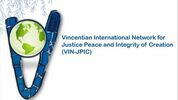

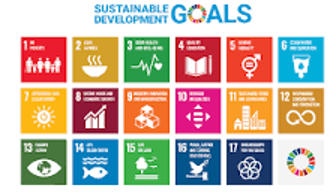
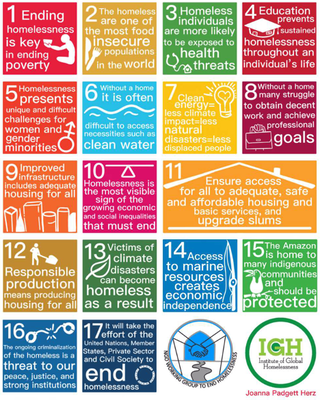
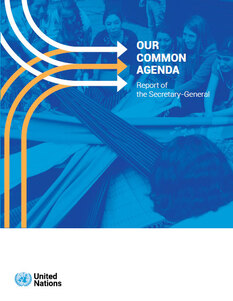
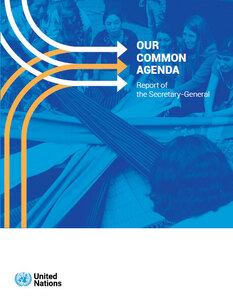
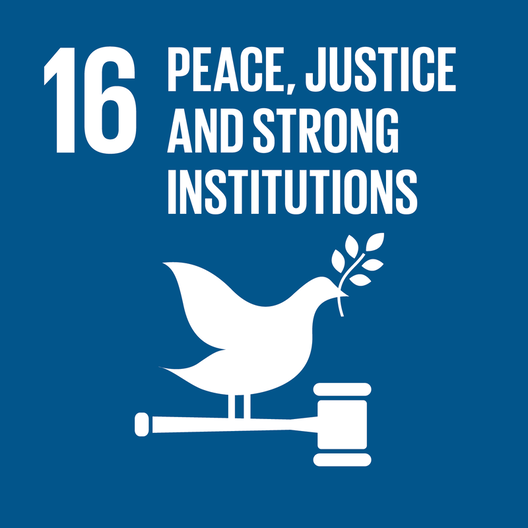
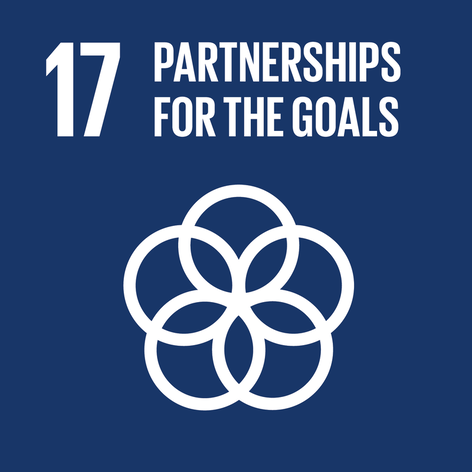
 RSS Feed
RSS Feed